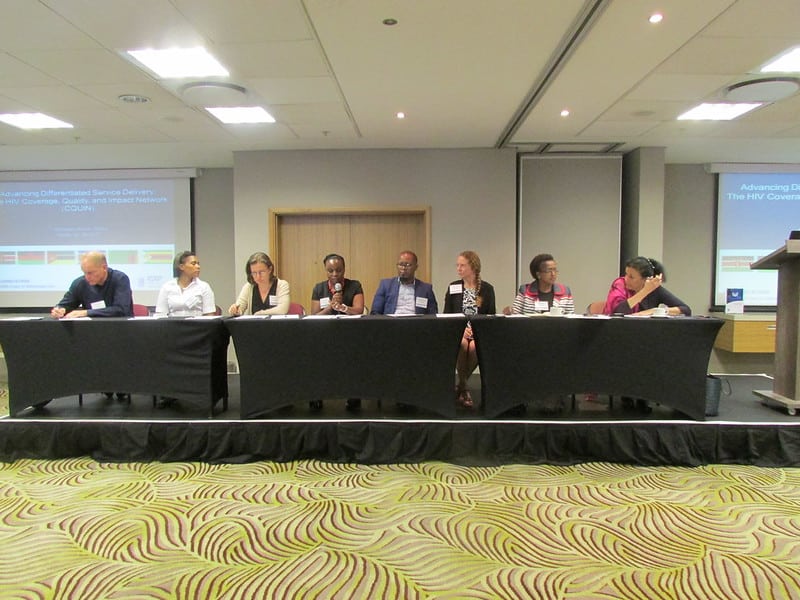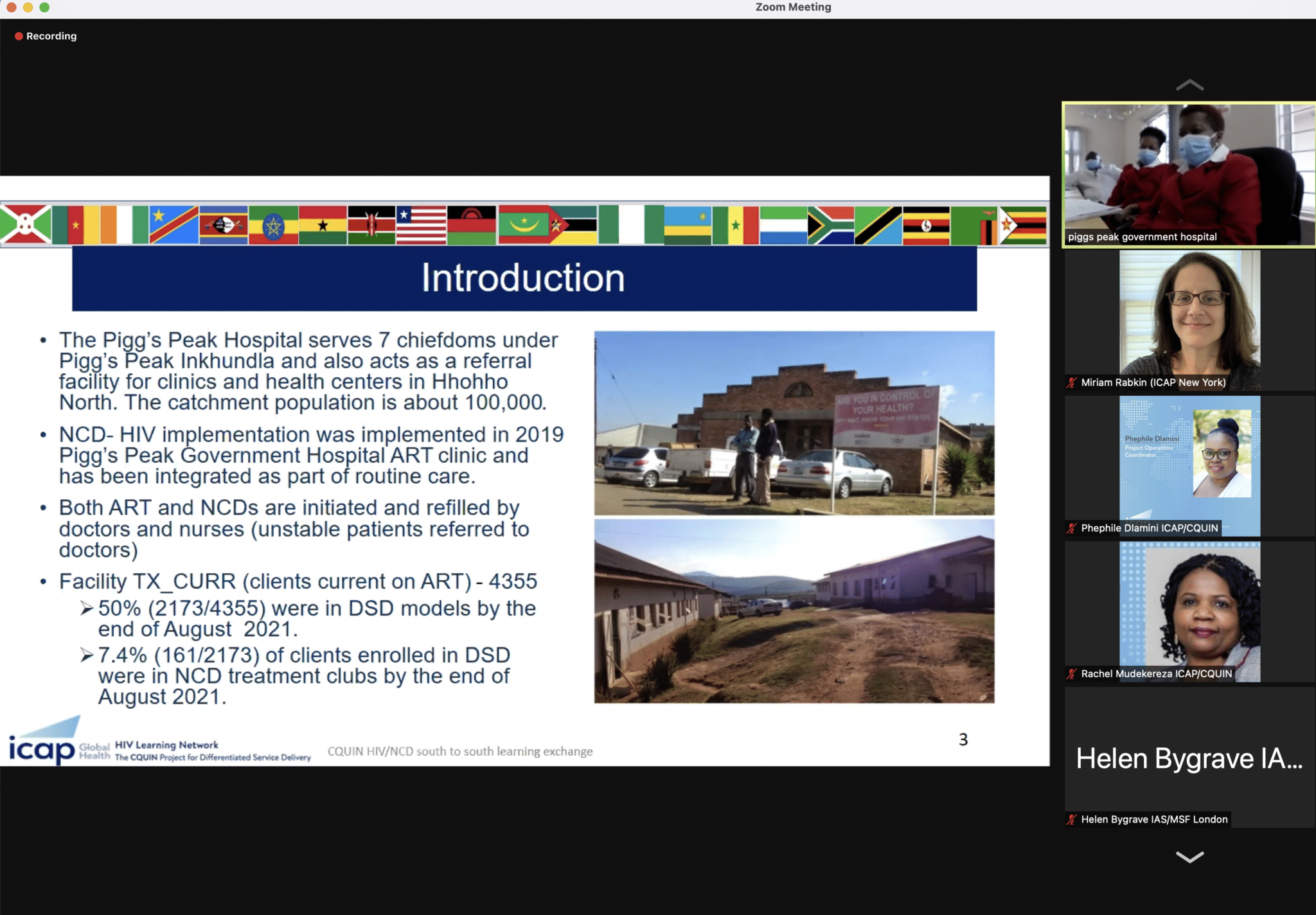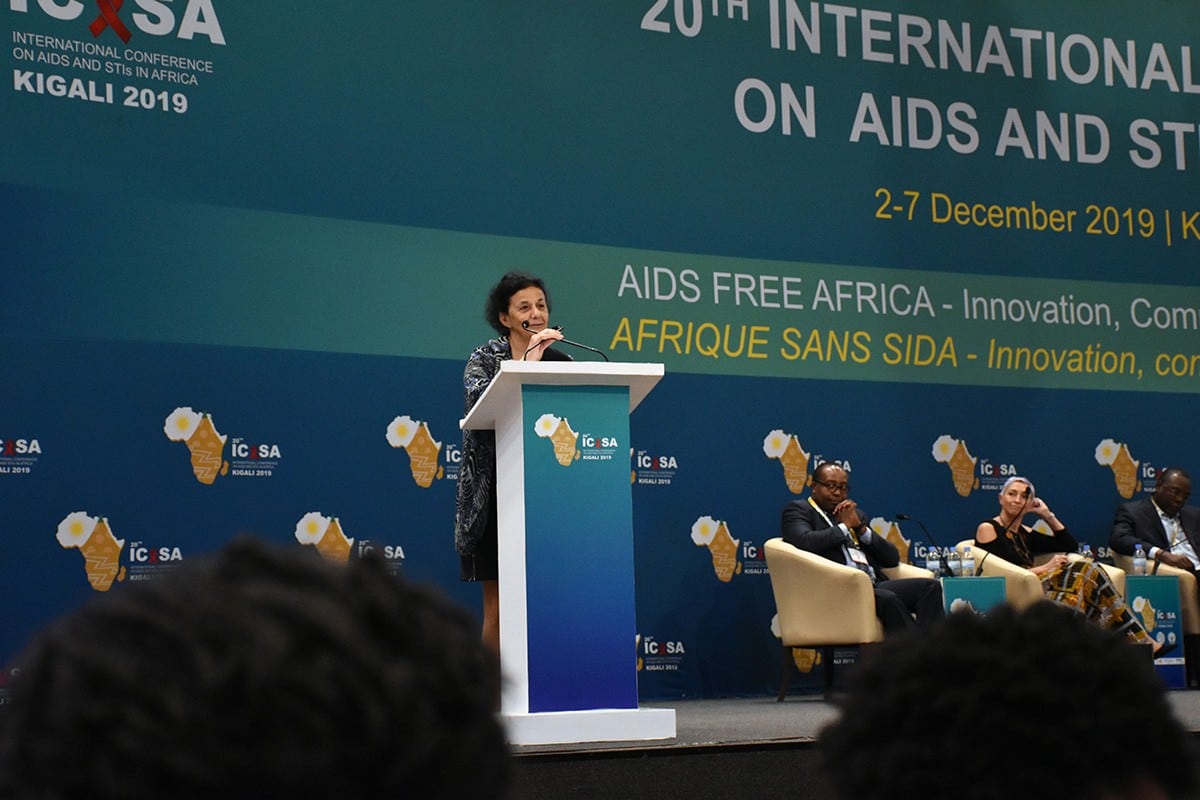Non-communicable diseases (NCDs), such as cardiovascular disease, cancer, diabetes, and chronic respiratory disease, are the leading cause of death and disability around the world—and an increasing health threat for people living with HIV.
Since the CQUIN launch meeting in March 2017, network participants have identified the need for efficient and integrated approaches to provide people living with both HIV and non-communicable diseases (NCDs) with holistic and integrated services.
As countries scale up differentiated service delivery (DSD), there is an opportunity to integrate screening for and management of NCDs into DSD models. CQUIN supports member countries in exploring and piloting approaches that enable recipients of care to receive both HIV and NCD services in an integrated fashion.

Community of Practice
In 2020, CQUIN launched the HIV/NCDs community of practice with the following objectives:
- Showcase models of integrated HIV/NCD service delivery
- Review key lessons learned, shared challenges, and opportunities
- Highlight available resources/materials to share
- Identify joint learning needs and activities for the group
The “Differentiated HIV & NCDs” community of practice (CoP) has supported webinars, satellite sessions, meeting breakout sessions, and virtual south-to-south exchanges between CQUIN countries in partnership with network country ministries of health, recipients of care, and partners, including the Differentiated Service Delivery project of the International AIDS Society, Resolve to Save Lives, Beckman Colter, PATH, the NCD Alliance, and others.
The CoP also works collaboratively with CQUIN network countries to implement and scale up integrated HIV/NCD services, exchanging best practices and models of care, identifying opportunities to co-create resources, and working to strengthen networks of practitioners and policymakers to promote ongoing cross-country learning.
- Herve N. Kambale is the technical lead, supported by Ms. Phephile Dlamini, who is a CQUIN project operations coordinator.
- The community of practice includes 54 participants from 16 countries – Cameroon, Côte d’Ivoire, Democratic Republic of Congo, Eswatini, Ethiopia, Ghana, Kenya, Malawi, Mozambique, Nigeria, Rwanda, Senegal, South Africa, Tanzania, Uganda, Zimbabwe, and includes stakeholders from the WHO, UNAIDS, PEPFAR, International AIDS Society (IAS), Resolve to Save Lives (RTSL), and the NCD Alliance.
COP Meeting Resources
Activities
Meetings and Webinars
The community of practice hosts quarterly meetings for participating countries and stakeholders and supports CQUIN webinars.
In 2023, the CoP developed the HIV/NCD integration domain of the CQUIN treatment capability maturity model, focusing on NCD integration into less-intensive treatment models.
The HIV/NCD domain staging questionnaire was tested in four countries (Cote d’Ivoire, Uganda, South Africa, and Rwanda) in May 2023.CQUIN leadership took country feedback into consideration for the final version of the domain, which countries used for the 2023 annual staging exercise.
Virtual South-to-South Learning Exchange Meeting

Following its second community of practice meeting in September 2021, Eswatini and Kenya expressed interest in learning from each other, Kenya was interested in the process of implementing facility-based integrated models, and Eswatini was interested in learning how to integrate NCD management in community models. Both countries expressed the need for learning how to strengthen their M&E systems for facility- and community-based integrated DSD models.
The Kenya team included the ministry of health focal person for care and treatment and NCDs, USAID, implementing partners, and a representative for people living with HIV. The hosting team from Pigg’s Peak Hospital made a detailed presentation of the treatment club for people living with both HIV and NCDs including the club’s clinical and non-clinical activities, patient’s flow, NCDs and HIV treatment prescription and distribution, and monitoring and evaluation. Subsequent calls will involve a presentation of community-based integrated models and M&E.
Satellites
20th International Conference on AIDS and STIs in Africa in Kigali, Rwanda
On December 4, 2019, in a plenary session entitled “Integrating HIV Care with Emerging Infections, Co-morbidities, and NCDs,” Wafaa El-Sadr, MD, MPH, MPA, ICAP’s founder and global director, presented on integrating HIV care with emerging infections, co-morbidities, and non-communicable diseases (NCDs). “We must focus on the health needs of the people we serve,” said El-Sadr. “This compels us to seek the most effective ways to deliver the services they need in an integrated manner and at the highest quality. It is time to move from small pilot programs to scale-up NCD/HIV integration to confront these two epidemics.”
23rd International AIDS Society Conference on HIV Science (Virtual)
On July 6, 2020 ICAP in partnership with the International Treatment Preparedness Coalition, ITPC, hosted a satellite session on DSD and NCDs titled “Resilient Chronic Care Systems: Differentiated Service Delivery for People with HIV and Non-Communicable Diseases.” The meeting included presentations, and panel discussions with ministries of health representatives from Eswatini and Kenya, PEPFAR, MSF, and the recipient of care community.
Subsequently CQUIN hosted a webinar together with Resolve to Save Lives and the DSD Initiative of the International AIDS Society on the same topic on October 6, 2020.

Resources
- Providing Differentiated Service Delivery to the Ageing Population of People Living with HIV
- CQUIN DSD & NCD Integration Community of Practice Meeting – June 2022
- Focus on the Person: Integration of HIV and Non-Communicable Disease (NCD) Services, A presentation by Wafaa El Sadr, Global Director, ICAP at Columbia University, ICASA 2019
- DSD for People Living with HIV and NCDs, A presentation by Dr. Hervé N. Kambale, Consultant, ICAP at Columbia University, CQUIN 4th Annual meeting 2020
- CQUIN HIV/NCD webinar
- Ehrenkranz P, Grimsrud A, Holmes CB, Preko P, Rabkin M. Expanding the Vision for Differentiated Service Delivery: A Call for More Inclusive and Truly Patient-centered Care for People Living with HIV. J Acquir Immun Defic Syndr 2021 Feb 1;86(2):147-152. doi: 10.1097/QAI.0000000000002549. PMID 33136818.
- Rabkin M, de Pinho H, Michaels-Strasser S, Naitore D, Rawat A, Topp SM. Strengthening the Health Workforce to Support Integration of HIV and Non-communicable Disease Services in sub-Saharan Africa. AIDS 2018;32:S47-S54. doi: 10.1097/QAD.0000000000001895. PMID: 29952790
- Duffy M, Ojikutu B, Andrian S, Sohng E, Minior T, Hirschhorn LR. Non-communicable Diseases and HIV Care and Treatment: Models of Integrated Service Delivery. Trop Med Int Health. 2017 Aug;22(8):926-937. doi: 10.1111/tmi.12901. Epub 2017 Jun 19. PMID: 28544500.
- Letebo M, Shiferaw F. Adapting HIV Patient and Program Monitoring Tools for Chronic Non-communicable Diseases in Ethiopia. Global Health. 2016 Jun 2;12(1):26. doi: 10.1186/s12992-016-0163-y. PMID: 27255329; PMCID: PMC4890485.
- Ameh S. Evaluation of an Integrated HIV and Hypertension Management Model in Rural South Africa: A Mixed Methods Approach. Global Health Action. 2020 Dec 31;13(1):1750216. doi: 10.1080/16549716.2020.1750216. PMID: 32316885; PMCID: PMC7191904.

